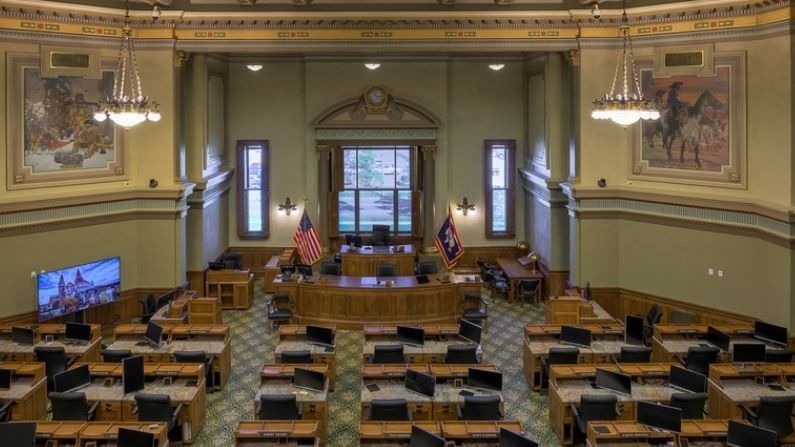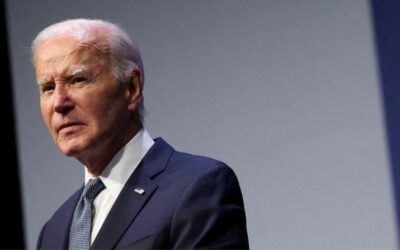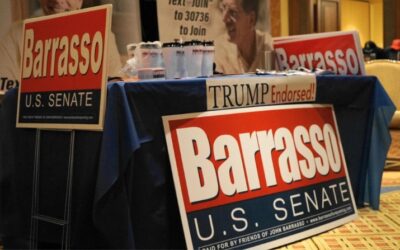Editor’s Note 2/25 @ 12:30 p.m.: Senate File 97 has passed the State Senate upon third reading (the vote was 18-12). This story has been updated to reflect this decision. The bill now moves onto the house.
Primary elections have an outsized impact on Wyoming politics. According to Gail Symons of the nonprofit organization Civics 307, 63% of the state’s 2020 legislative elections were determined in the party race—not because the general elections weren’t close, but because nobody from the other side even registered to run. And that’s even more extreme at the local level.
“Over 90% of county and local partisan races are determined in the primary,” Symons said during testimony at a Wyoming State Senate committee meeting Tuesday. “So, if you don’t vote in the primary, and particularly [if] you don’t vote in whatever the majority party in your county is, it’s already decided before you get to the general [election].”
Symons said a lot of Wyomingites understand this. So, they switch their party, often while registering at the ballot boxes on Election Day, in order to cast a vote they know will make a difference. That’s called crossover voting, and it’s been getting more controversial over the past several years.
Sen. Bo Biteman (R-Ranchester) introduced Senate File 97, “Change in Party Affiliation,” and defended it fiercely over the past week. He also said he’s been trying to pass a similar law ever since he was first elected in 2016.
“Hopefully, this is the year we drag this carcass over the finish line,” he said.
Biteman said he’s been concerned for a long time about party affiliation changes, particularly about Democrats switching to vote for a Republican they like more than other candidates, and then switching back after the results come in. According to him, that’s put more moderate folks like Republican Gov. Mark Gordon in office, and it dilutes the voices of true GOP members.
“That’s the exact practice I’m trying to stop with this legislation,” Biteman said. “I don’t think it’s fair. I don’t think it’s the right thing to do, and I think it’s time we change that.”
This year, crossover voting is especially in the spotlight due to the race to potentially unseat Rep. Liz Cheney (R). Former President Donald Trump has even gotten involved, endorsing both her main challenger attorney Harriet Hageman and Biteman’s bill. Now, the proposed legislation has passed the senate with decent support. But not without some objection.
Mary Lankford is a clerk in Sublette County, and she’s that concerned fewer people will be able to vote under this proposal. In particular, she brought up a situation she said she sees often, in which people want to vote for candidates but don’t realize they need to be party members to do so.
“They get started voting on their ballot and they realize that, geez, they really wanted to vote for the sheriff, and he’s on the other side of the ballot. So, it’s like, ‘I want to change my party and vote for my friend,’” Lankford said. “Those ‘oops’ things happen, and we don’t really know how we would deal with that in a situation like this, because you’re not allowed to change your party until after the day of the primary.”
Lankford said many folks in Wyoming, including the over 35,000 unaffiliated voters, prefer not to register for a party until they know who’s on the ballot. But if this bill were to pass, the deadline to get your paperwork in order would be May 11—long before the candidates are set. She also said most people in Wyoming aren’t well-versed in party politics and don’t vote as such, but still deserve to have their voice heard. Symons of Civis 307 agrees.
“I think people are saying, ‘I really care. I look around at what’s happening. And while I am not a dyed-in-the-wool Republican Party person, we have a lot of people who believe in the principles of the party, even if they don’t care for the party itself,’” Symons said.
Plus, she said what Republicans worry most about—Democrats switching back and forth within a short time span—actually rarely happens. In fact, just 518 people, or 0.4% percent of the vote, switched from “D,” to “R,” and then back to “D” in 2018. Most who switch are doing so permanently, or moving here or anything else other than something with malicious intent.
“We had more Republicans who did not show up for the primary than we had total registered Democrats,” Symons said. “The problem is not switching over. The problem is participation.”
But Biteman and others say, tough luck. They feel that primary elections are supposed to be for diehard party members. The state GOP and Democratic Party publish their platforms in lieu of candidates, and voters can decide before anyone begins running if they want to be involved.
“People that decide they’re unaffiliated, that don’t want to be part of a party, that’s their choice,” Biteman said. “They make that choice. The rest of us choose to be part of a party. And we should have that choice, and our vote should not be canceled out by people that just want to game the system.”
But others argue that the bill would disenfranchise people trying to become more involved in politics. Sen. Cale Case (R-Lander) gave one final plea on the senate floor Wednesday against the bill.
“This legislative session has had a lot to do with keeping people out,” he said. “Keeping people from being in sports or keeping people from voting in elections or keeping people from getting services from their government. I don’t want to be that person that keeps people out. I want to win on ideas and bring people in.”
Still, the bill passed the senate after three lengthy debates and votes. It now must pass the house and governor’s desk before becoming law. But if it does, it will come into effect this year, changing the rules before what is already the most expensive primary race in Wyoming’s history.





